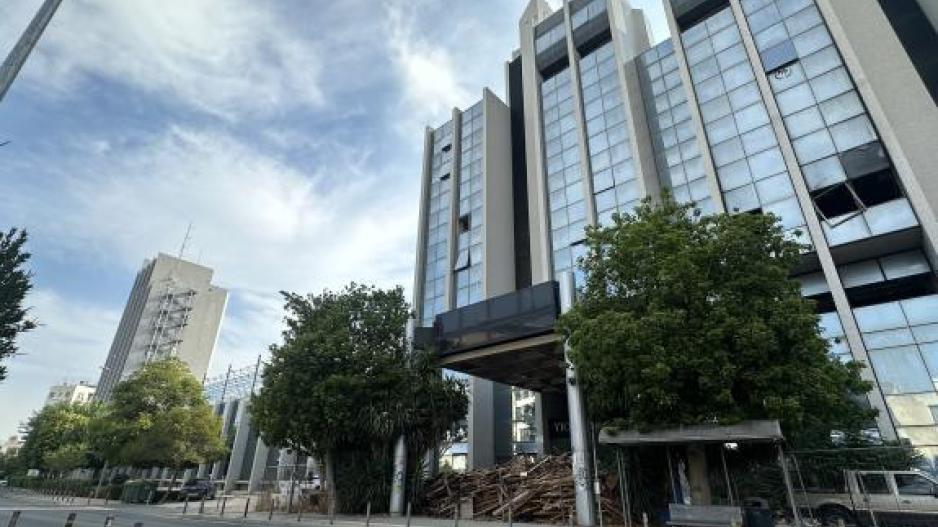Cyprus Property Developers Lead Dynamic Growth in 2024
Real Estate Drives 15% Of GDP With Innovation And Resilience
2024 was a year of dynamic progress for the real estate sector, stated Yiannis Misirlis, President of the Cyprus Land and Building Developers Association, during the Association's Annual General Meeting held on Thursday at the Cyprus Employers & Industrialists Federation (OEB).
During the meeting, the Association decided to renew its identity, changing its name and logo, with its new name being the "Cyprus Property Developers Association."
Highlighting that the sector's contribution to the country's GDP stands at 15%, with over 40,000 jobs created, Mr. Misirlis said, "Not only have we maintained our role as one of the key pillars of the Cypriot economy, but we have also further strengthened our contribution," adding that the sector has proven its resilience despite ongoing challenges, naming these as the housing crisis, delays in licensing, inflation, high interest rates, and geopolitical upheavals.
These results, he said, are the outcome of hard work, flexibility, extroversion, and the strategies implemented by the Association's members, the property development companies. They are also a result of the development of modern and technologically advanced projects that meet the needs of the era and shape the modern profile of the country, he added.
Mr. Misirlis stated that the performance of the real estate sector is also due to the continued growth trajectory followed by the country in recent years, with the upgrading of the Cypriot economy reflected in the property market. He also pointed to the close collaboration developed by the Association with the executive and legislative branches, as well as with all relevant Ministries and Services. "This is a collaboration based on mutual respect and on the fact that we share a common goal of improving the sector," he said.
Referring to the challenges affecting the sector's operation, the President of the Association stated that they actively support the Ministry of Interior's efforts to implement effective policies that will address the housing issue, by submitting proposals and suggestions that improve housing policies and further utilize existing plans.
He also noted that the licensing processes for developments need to be immediately accelerated, as this constitutes a significant obstacle for the real estate sector. "The smooth functioning of District Administrative Organizations is imperative to advance the implementation of thousands of new projects currently on hold. This development will significantly contribute to increasing the housing stock, addressing the housing problem, and stabilizing property prices," he emphasized.
Additionally, he referred to the necessity of forming a comprehensive strategy to address the "intense and ever-increasing" labor shortage, which would ensure the country's competitiveness, maintain the sector's momentum, and prevent potential impacts on growth and productivity.
Mr. Misirlis also said that the Association is working towards the sector's transition to the green era, noting that it is in contact with the Ministry of Agriculture, Rural Development, and Environment to provide incentives for this transition. At the same time, he mentioned that technology is opening new opportunities in the real estate sector, highlighting the importance of utilizing artificial intelligence to improve the sector's performance.
The President of OEB, Antonis Antoniou, in his address, referred to the European Commission's forecasts for strong economic growth in 2025-2026, the anticipated slowdown in inflation, and wage increases. He noted that the fiscal balance is expected to remain in surplus, supported by continued strong revenue growth and moderate spending increases.
Referring to the land development and construction sector, he said that it contributes 15% to the country's gross added value and is a key pillar of the Cypriot economy. He pointed out the challenges faced by the sector, mentioning international economic uncertainty, increased prices of construction materials, energy costs, and the demands arising from the need for a green transition.
"For the sector to continue its upward trajectory as foreseen," he said, "the state must intensify its efforts to reduce bureaucracy and further develop the necessary infrastructure, as outlined in the National Recovery and Resilience Plan."
Intervening at the meeting, the President of the Architects’ Association, Alkis Dikaios, gave a presentation titled "Building a Sustainable Future." Mr. Dikaios referred to the "New European Bauhaus" movement, which he said combines aesthetics, sustainability, and inclusion.
Noting that in the UN's 2023-2024 report Cyprus ranks 32nd out of 34 countries in achieving sustainable development goals, he said that actions are needed for climate initiatives and sustainable cities and communities.
Referring to urban planning, he noted that compact cities are required—"15-minute cities"—with mixed-use development to reduce the need for car transportation. He also advocated for pedestrian-friendly designs, wider sidewalks, bike lanes, and efficient public transportation. Furthermore, he highlighted the need to increase the number of urban green spaces.
Mr. Dikaios also said that from an energy footprint perspective, utilizing the existing building stock is important, while stressing the importance of preserving the country’s cultural heritage and historical buildings.
Regarding new buildings, he emphasized the need for bioclimatic design, proper building orientation, thermal insulation, and shading. He also noted the importance of avoiding soil sealing to allow for rainwater absorption, creating green spaces, green roofs, and vertical gardens to improve the microclimate.






